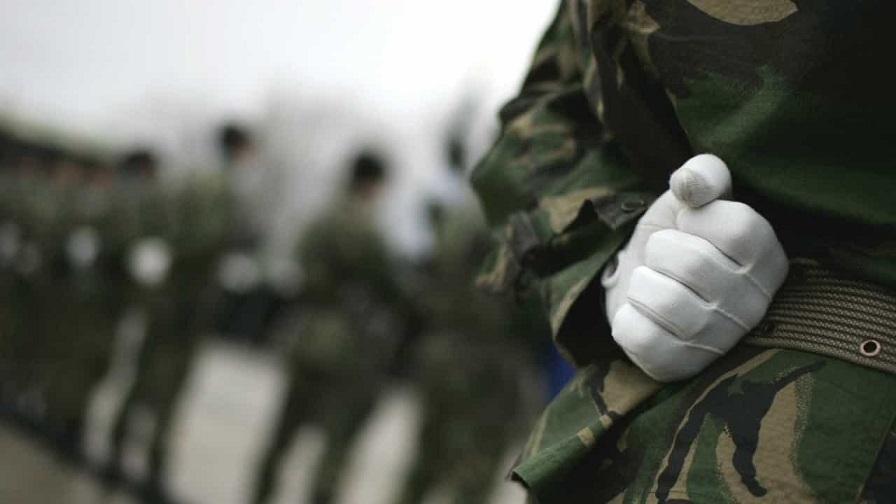Africa-Press – Mozambique. Nuno Lemos Pires, the brigadier-general in Portugal’s army who is to head the European Union training mission (EUTM) in Mozambique, leaves for Maputo on Tuesday, convinced that it will be fully operational “by the end of the year,” he told Lusa in an interview.
Lemos Pires is to join the “advance planning force” while EU officials discuss details of the mission and negotiate the participation of the various countries that are to make up the mission, which the brigadier-general estimated could be “around ten to twelve” EU member states and probably two or three countries from outside the EU.
“On the 16th – the date on which the force generation conference will take place – we will have greater clarity on how many countries will effectively give [manpower], for what and how many,” Lemos Pires explained, stressing that the process “is still far from being closed.”
In addition to being a brigadier-general, Lemos Pires is currently assistant director-general for National Defence Policy at the Ministry of National Defence and a professor at the Military Academy.
“The only thing we know is that we are going to have around ten to twelve European Union countries and we will probably have two or three countries from outside the European Union, which have already volunteered to also contribute to the mission,” he said. “Portugal remains firm in its commitment to, if necessary, contribute with up to fifty percent of the personnel, which on the ground will be around 120 people.”
In addition to these 120, the mission will also have around 50 people “on call”, who would only fly in for short periods, so that the total mission should have around 170 personnel, including a paramilitary force. Portugal is expected to send two or three members of the Republican National Guard and other countries will also contribute with gendarmes – and civilians.
The EU should give the order to launch the mission in October, but only “in November or December” should the Final Operation Capabilities (FOC) be finalised – all of which Lemos Pires acknowledges will depend on his capacity and that of those who are now travelling to Mozambique with him “to get things moving” there.
“When everything is in place, when all the countries are on the ground and the training of the new companies is ready – which will certainly be by the end of the year – the FOC will be declared and two years will start from then,” he explained. “At the end of two years, [the mission] is finished, unless it is re-evaluated strategically to continue.”
In addition to training Mozambique’s rapid reaction force, the EU is also to support its commando and rifle units with non-lethal equipment.
“What the European Union is doing – along the lines of what Portugal was already doing – is two things,” Lemos Pires went on. “We are taking into account what the Mozambican armed forces have, and the European Union, like Portugal, is making an effort to also help with the equipment of the force. Negotiations are taking place in Brussels about an equipment package that may be given to those companies that will be formed.”
This will be exclusively for those marine or commando units being trained, and the equipment will be only non-lethal, he stressed.
“So we’re not talking about weapons, we’re talking about uniforms, support material, vehicles, etc.,” he said, explaining that it would also be one of his duties to monitor this process. “But it is still too early to talk about this. It is still under discussion within the EU, so, what can be said is that there is an expectation that the EU will help with part of the equipment, according to what the Mozambican armed forces can provide.”
At a time when Mozambique is grappling with the aftermath of the hidden debts scandal – a case in which some $2 billion in public funds were embezzled, and which relates in part to the purchase of military equipment and war material, Lemos Pires was asked to comment on whether Maputo had the political conditions to decide at this time to reinforce its navy with boats or light coastal patrol vessels – a need that is particularly important in the case of the country’s northern coast and the security of natural gas facilities in Cabo Delgado province. His response was particularly assertive: “marines use boats and, as such, boats are non-lethal equipment, so there is no reason why the marines should not be provided with boats and engines, etc.”
As for Maputo’s ability to take on its share of equipping and training its future rapid reaction force, the general explained that “Portugal, bilaterally, began to train a company of marines in Catembe and a company of special forces of the Army in Chimoyo and Mozambique did its part.
“It presented all its trainees duly uniformed, equipped and also armed,” he said. “If the Armed and Defence Forces of Mozambique have honoured bilaterally [their agreement] with Portugal, [it is] guaranteed [that] they will also honour with the EU, because it is in the interest of both.
“This has been done with maximum dialogue,” he stressed, going on to refer to the expression ‘ubuntu’ in Africa’s Bantu languages. “Here there is no one telling someone else what they are going to do. It is a bit like the African expression ‘we are together’.”






